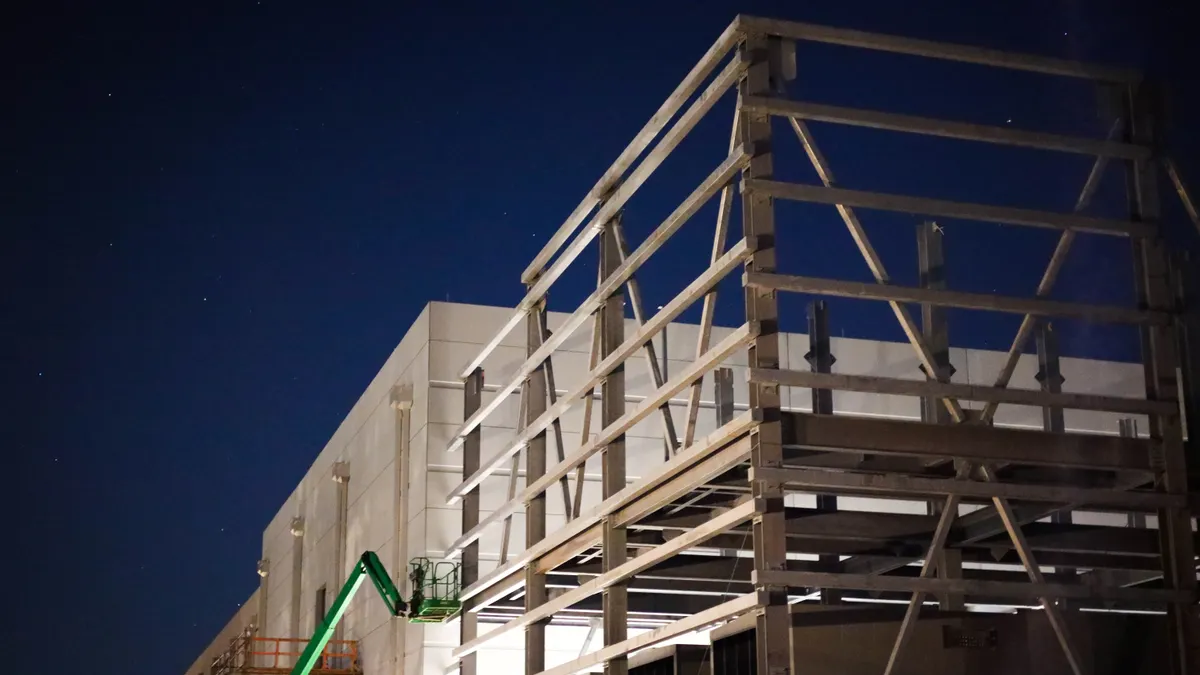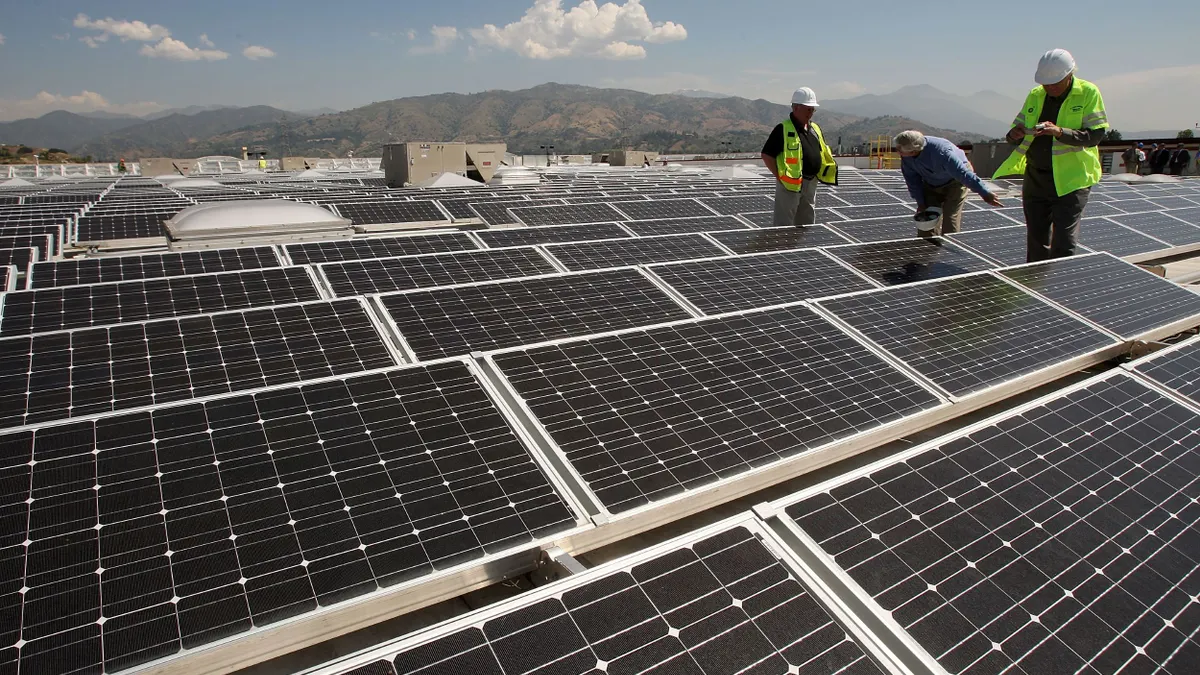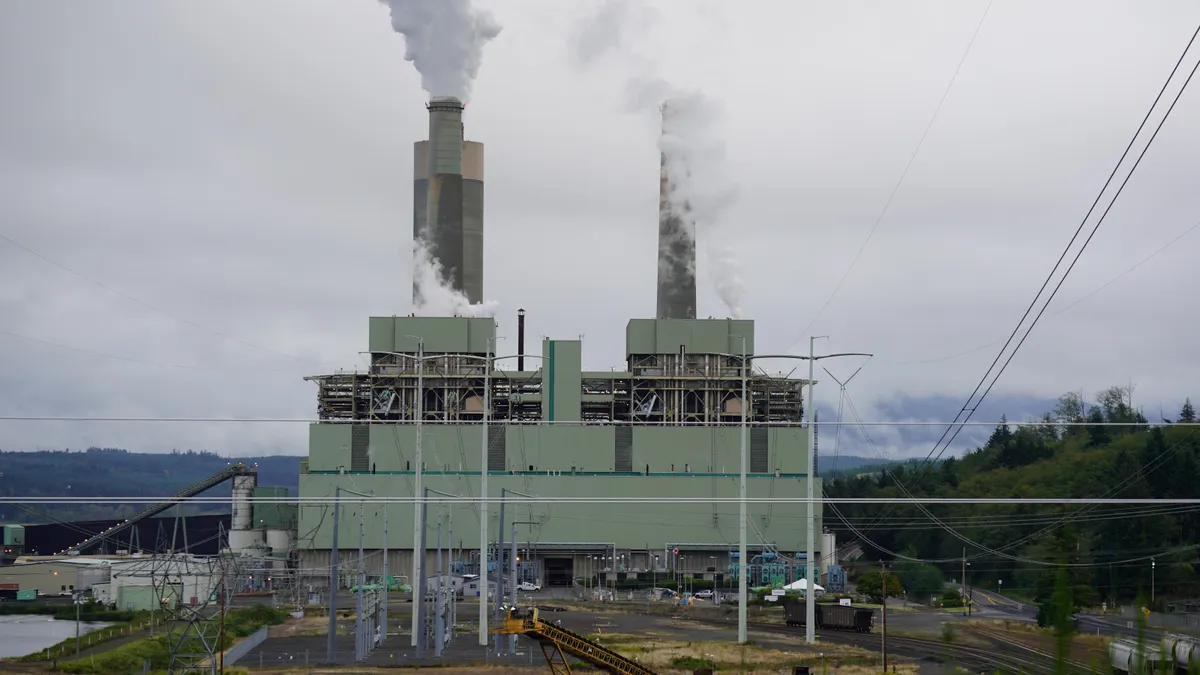Duke Energy and Dominion Energy's joint announcement canceling the Atlantic Coast Pipeline (ACP) natural gas project has spurred other natural gas pipeline developers to project confidence in their projects and differentiate themselves from ACP.
"The industry is rightfully scared that the status quo is changing... and it's therefore unsurprising that companies would be eager to find ways to distinguish themselves from Atlantic Coast," Gillian Giannetti, an attorney in the Sustainable FERC Project at the Natural Resources Defense Council, told Utility Dive. "Whether that turns out to be appropriate remains to be seen."
Similar to ACP, the Mountain Valley Pipeline (MVP) project is crossing the Appalachian Trail and developers continue to pursue permitting for the project.
They were quick to issue a statement on Sunday setting their project apart from ACP.
"From the beginning, ACP and Mountain Valley Pipeline (MVP) have been very different projects, as evidenced by the fact that total project work for MVP is roughly 92% complete," they said.
Mountain Valley is owned by Equitrans Midstream, NextEra Energy, Consolidated Edison, AltaGas and RGC Resources. The pipeline is set to enter into service early next year and its capacity "has been fully subscribed since the onset of the project," to deliver natural gas in the mid-Atlantic and Southeastern U.S.
Reuters reported on Tuesday that analysts foresee how the proposed Southgate extension of the MVP project into North Carolina could gain traction due to the region's growing energy demand in the wake of the ACP cancellation.
But MVP has also run into challenges.
FERC ordered a halt to construction in October along the entire route while the federal government studies MVP's potential impacts on endangered species. But developers say the project remains on track.
"As the MVP project team continues to work through and resolve the outstanding regulatory permits, the project’s current construction plan incorporates sufficient tie-in work and activity that will allow for construction to progress into the early winter, provided MVP receives its Biological Opinion in July and the FERC lifts the stop work order, all of which keeps MVP on track to meet its targeted early 2021 in-service date," according to Natalie Cox, Equitrans spokesperson.
But environmental groups maintain that MVP could face a similar fate to ACP.
Duke and Dominion's decision on ACP "certainly casts a shadow over the fate of MVP, too, since it faces an uphill climb similar to the one that ended the ACP," Doug Jackson, spokesperson for Sierra Club's Beyond Dirty Fuels campaign, told Utility Dive.
Sierra Club is involved in legal challenges of Jordan Cove, a proposed liquefied natural gas (LNG) export facility, the Permian Highway pipeline and three LNG facilities proposed for the Rio Grande Valley in Texas.
Another project, the PennEast Pipeline, also highlighted that it's "unrelated" to ACP, according to spokesperson Patricia Kornick. The developers are pursuing a decision from the Supreme Court, which requested input from the U.S. Solicitor General on a permitting issue, which has caused environmental groups to compare the two projects.
Duke and Dominion deemed ACP over-cost and behind-schedule less than a month after the Supreme Court ruled in their favor regarding one of the permits the project needed to cross beneath a national trail.
But Gianneti sees trouble for that, too.
"The PennEast Pipeline is facing stiff opposition, is highly unlikely to obtain all of the permits that are necessary to be built and in currently pursuing a Supreme Court pass," similar to ACP, she said.
Confidence in the face of permitting challenges
Attorneys supporting pipeline projects see the public declarations of differentiation as necessary to keep projects alive.
Pipeline developers "do have to project confidence and success, and you've got to press really hard," Seth Belzley, partner at Holland & Knight and co-leader of its pipeline group, told Utility Dive. "If people get the hint that you are not pursuing it, it finds its own death certificate."
Environmental advocates maintain that the momentum in 2020 has discouraged not only Duke and Dominion but another Northeast pipeline that sought to cross New York. Constitution Pipeline was abandoned at the end of February by Williams Construction, Duke, Cabot and AltaGas as the project faced permitting issues.
"Everything is fine with these projects until the day they're abandoned. That was the case with Constitution [Pipeline] as well, Williams insisted that the project was going to go forward until it didn't," Giannetti said.
But Belzley disputed the idea of broad impacts.
"I don't see any of the recent decisions here necessarily affecting all pipelines, or decreasing or increasing, the regulatory uncertainty, or litigation uncertainty, related to pipeline development," he countered, since recent court cases have been very specific to the particular projects.
One issue with the complexity of projects is how many components of the permitting process can be challenged, he said. Recent cases beyond the ACP have discouraged the oil and natural gas sector, including the temporary shutdowns of the oil Keystone XL Pipeline and Dakota Access Pipeline. However, Belzley says, the environmental challenges to these projects do not have "a common theme."
The cases are "all decided on the specific facts" of the project, which is "a reflection of the opponents ... getting good lawyers who are creative, and who have lots of avenues to make arguments before the court," Belzley said, adding that opponents are focusing on larger projects.
"If there's a huge market demand for projects, even very complicated projects will be pursued. I think what we may be seeing as well is the economics of some of the projects not being strong enough to warrant continuing to pursue them, and that's what you saw with the Atlantic Coast Pipeline as well," he said.
Environmental groups and others are working to change the decision calculus for pipeline developers.
"This development will embolden communities around the country to keep fighting against projects that are unneeded and unwanted. So whether it's PennEast, Mountain Valley Pipeline South Gate, Jordan Cove, this decision will only reinforce to those affected communities that the fight is worth fighting." Giannetti said.
Despite the recent negative developments in the oil and natural gas sector, the Department of Energy on Monda authorized the export of liquefied natural gas (LNG) from the new Jordan Cove terminal on the coast of Oregon.
The Jordan Cove Energy Project, owned by Canada's Pembina Pipeline Construction, "serves to further expand opportunities for U.S. LNG abroad, particularly in the growing markets of Asia," DOE Secretary Dan Brouillette said in a statement.
The export terminal went through "the normal authorization process at DOE," and was not impacted by recent natural gas developments, according to federal spokespersons, but some opponents of fossil fuel infrastructure view this as an attempt for the Trump administration to "ram through" more fossil fuel projects.
According to the Global Energy Monitor, LNG terminal capacity under construction has doubled worldwide in the last year, as the U.S. and Canada seek new markets.
Environmental groups questioned the timing of the DOE action, but federal spokespersons said the project went through "the normal authorization process at the DOE," and was not impacted by recent decisions regarding Keystone XL, Dakota Access, or the cancellation of ACP.
"The proper response to company seeing the writing on the wall and recognizing that a project they never should have pursued should be stopped is not to ram through arguably the other most controversial project currently being discussed," Giannetti told Utility Dive.






















